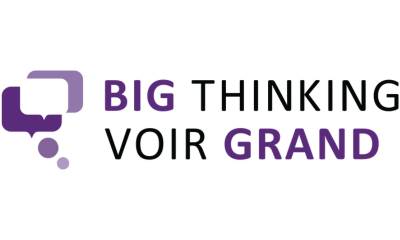VANCOUVER, June 2, 2019 — Food sovereignty, cancer risks, and selling the idea of “wellness” are among the topics being discussed this week as the Congress of the Humanities and Social Sciences gets underway at the University of British Columbia. Canada’s largest academic gathering, Congress brings 8,000 of the country’s brightest researchers, thinkers, and policy-makers to Vancouver from June 1-7.
Over 5,000 pieces of research are being presented on a wide range of topics. Some of the health issues being explored include:
- Perceptions and Experiences of End-of-Life Care and Medical Assistance in Dying within Marginalized Populations
With the legalization of MAiD, there is concern over vulnerable people feeling pressured to end their lives. This presentation will feature results of the first Canadian study of what people in highly marginalized communities know and feel about MAiD and other end-of-life care options.
June 6 — 10:30 am - 12:00 pm
- Are Those French Fries Local? Food Sovereignty in Regions Where Food is Grown
This presentation explores the irony that farm workers and their children are often unable to attain nutritious food, despite their close ties to food production. Specifically, we look at California's Central Valley, which exports a great deal of food to Canada.
June 4 — 9:00 - 10:00 am
- What Drives Wellness Discourse?
We know that wellness sells: it's everywhere — on granola bars, in yoga studios and in the media. It is a self-perpetuating system, as there is no ceiling to how “well” we can be. This presentation explains how the language of wellness has seeped into every aspect of our lives.
June 2 — 8:30 - 9:00 am
- Investment in Obesity: What's the Return on Fat Stigma in Food Studies?
Fat stigma seeks to preserve the status quo, not only within dominant food systems, but within movements that purport to challenge them. This research will examine how fat stigma undermines efforts to revolutionize and democratize the food system.
June 3 — 1:30 - 3:00 pm
- Narratives of breast cancer in an environment with identified risks
Up to 70% of breast cancers are linked to environments, but the risks are not well understood. Interviews with women workers at the Ambassador Bridge in Windsor, where over 20,000 transport trucks cross daily and where breast cancer rates are 16 times higher than expected, were conducted to understand their perception of risk and the influencing factors.
June 5 — 1:30 - 3:00 pm
Congress is an annual gathering of over 70 scholarly associations, each holding their annual conference under one umbrella. This year’s theme is “Circles of Conversation,” reflecting the need for dialogue, debate, and dissent within and across disciplines.
Congress is organized by the Federation for the Humanities and Social Sciences, which promotes research and teaching for the advancement of an inclusive, democratic and prosperous society. With a membership now comprising over 160 universities, colleges and scholarly associations, the Federation represents a diverse community of 91,000 researchers and graduate students across Canada. Congress 2019 is hosted by The University of British Columbia.
The Congress 2019 media kit can be downloaded here.
More information about Congress is available on their website, Twitter and Facebook.
For interview requests
Federation for the Humanities and Social Sciences
Nicola Katz
Manager of Communications
nkatz@ideas-idees.ca
Cell: 613-282-3489
University of British Columbia
Erik Rolfsen
Media Relations Specialist
erik.rolfsen@ubc.ca
Cell: 604-209-3048

Bringing communities together
By Dr. Margrit Talpalaru, professor & Academic Convenor for Congress 2025 at George Brown College George Brown College (GBC) is the first college to host the Congress of the Humanities and Social Sciences in its 94 years: this has emerged as the...

Congress in Conversation - Part III with Aliyah Datoo
← Big Thinking Podcast homepage Introduction | About the guest | Aliyah Datoo's Research at Congress | Transcript | Follow us Introduction Welcome to Congress in Conversation, a special series presented by the Big Thinking Podcast in partnership...

Sustaining political community
Big Thinking at Congress 2024 In the face of rising threats to democracy, what can be done to promote sustainable political community? Join us for a thought-provoking discussion on political polarization, social injustice, and the spread of...
